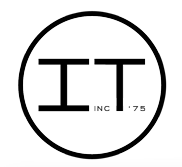 U.S. literary agent Peter Riva (photo at left), co-founder of the wide-ranging agency International Transactions Inc., shared some thoughts on the position of agents, authors and publishers in today’s digitally disrupted print universe with Lise Quintana, editor-in-chief of Lunch Ticket, “a literary journal from the MFA community at Antioch University Los Angeles.” Some were helpful, some surprising, some contentious, some revealing.
U.S. literary agent Peter Riva (photo at left), co-founder of the wide-ranging agency International Transactions Inc., shared some thoughts on the position of agents, authors and publishers in today’s digitally disrupted print universe with Lise Quintana, editor-in-chief of Lunch Ticket, “a literary journal from the MFA community at Antioch University Los Angeles.” Some were helpful, some surprising, some contentious, some revealing.
For one thing, Riva clears up some lingering doubts about the publishing industry’s competence to ride herd on, and rein in, the woollier excesses of self-publishing writers with firm editorial discipline. “Writers have to realize that, with the exception of maybe ten editors, there are no editors left in publishing in the old-fashioned sense,” he warns. “Editors used to see the quality of the story and the ability of the writer to construct a book, and then aid and enhance that process … That kind of editing minutiae no longer exists. You’ll get people who will correct spelling and all the rest, but they won’t help you realize where your manuscript is less than perfect.”
 Riva does give a list of corrective measures and a ramp-up plan for those writers who want to find a new version of that beneficial discipline, but the approaches he suggests are close to the routes now being taken by most self-published authors.
Riva does give a list of corrective measures and a ramp-up plan for those writers who want to find a new version of that beneficial discipline, but the approaches he suggests are close to the routes now being taken by most self-published authors.
As well as running their work past family and friends, he advises, aspiring scribes should “either hire a professional editor, one of the people who’s no longer working at a publishing house who’s set up [an] independent shop, or I would go to a university and find an English or literature teacher who’s willing to help me rip it apart and tell me what’s wrong with it. And I’d fix it. Then I would edit it again, and then and only then, when I felt that it was presentable, would I then seek to find an agency.”
These days, Riva remarks, “the role of our agency hasn’t changed, since we’ve always been a hand-holding agency. Our agency works differently in that we help mold and refine the product before it’s taken to a publishing house. In fact, we’ve found that the demand for our agency has grown, since a lot of authors have published books by themselves and thought that makes them a ‘published author,’ and therefore they can get their next book picked up automatically by a publishing house.”
Riva warns first-timers not to expect too much from any house they do find, because, “publishers, and we’re now talking the Big Five (since it’s no longer the Big Six), are heavily engaged in profit-taking based on turning their back-end list into e-books. Their resources are being directed in that way.”
But publishing houses must also have had some curious illusions about themselves, judging from some of Riva’s other comments. “There’s a second thing that’s happened in publishing in the last five years that I predicted 10 years ago and was laughed at [for] by several publishers. It is that the brand is no longer the publisher; the brand is the author. As publishers have come to realize that the way to maximize profits is to build out those brands, it has, very much like a tornado, drawn everything to it as far as resources within the company is concerned.”
Did publishers really imagine that they were the brand? I might accept that for a house like Penguin or Everyman in their old guises, as founts of intellectual and cultural value, but branding as a commercial entity seems to me to completely contradict anything that such brands originally stood for. If that was how they felt about themselves, then no wonder they behaved as they have done since e-books and Amazon came along.
Meanwhile, Riva seems to have few fears for his own profession—perhaps with good reason.
According to International Transactions’ website, “since 1975, Peter and Sandra Riva have specialized in international idea brokerage catering to multi-national, multi-lingual, licensing and rights’ representation of authors and publishers, as well as producing award-winning television and other media. They have been responsible for over 35 years of production, in both media and product, resulting in excess of $1.6 billion in retail sales and several international historic events (the memorabilia of which are on permanent display in national institutions in America, Germany, and France).”
With the best will in the world, it’s hard to imagine self-published authors reduplicating a track record like that on their own time.































